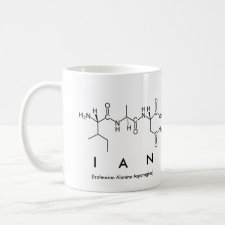
Authors: Karlsson JG, Andersson LI, Nicholls IA
Article Title: Probing the molecular basis for ligand-selective recognition in molecularly imprinted polymers selective for the local anaesthetic bupivacaine.
Publication date: 2001
Journal: Analytica Chimica Acta
Volume: 435
Issue: (1)
Page numbers: 57-64.
DOI: 10.1016/S0003-2670(00)01182-X
Alternative URL: http://144.206.159.178/FT/38/35376/606444.pdf
Abstract: Molecularly imprinted polymers (MIPs) are an interesting novel class of sorbent for analytical separation science, with one particular area of potential being in the development of highly selective solid-phase extraction systems. In order to optimise polymer-ligand selectivity and to examine the underlying physical mechanisms, polymers with selectivity for the local anaesthetic bupivacaine have been synthesised and their ligand- recognition characteristics examined. The influence of rebinding media parameters (pH, ionic strength, polarity) have been studied and optimised with respect to selective MIP-ligand binding, and the working range of the polymers with respect to these parameters has been mapped. These results highlight the robustness of MIPs and the breadth of potential assay conditions that may be employed. Finally, competitive binding studies using the closely related structures mepivacaine, ethycaine, ropivacaine and pentycaine in solvent mixtures of different polarity revealed that the entropy-driven hydrophobic effect is significant in polar solvents, whereas enthalpy- driven electrostatic interactions dominate in non-polar media. (C) 2001 Elsevier Science B.V. All. rights reserved
Template and target information: bupivacaine



Join the Society for Molecular Imprinting

New items RSS feed
Sign-up for e-mail updates:
Choose between receiving an occasional newsletter or more frequent e-mail alerts.
Click here to go to the sign-up page.
Is your name elemental or peptidic? Enter your name and find out by clicking either of the buttons below!
Other products you may like:
 MIPdatabase
MIPdatabase









